Critics turn on 'indifferent' Turner Prize
- Published
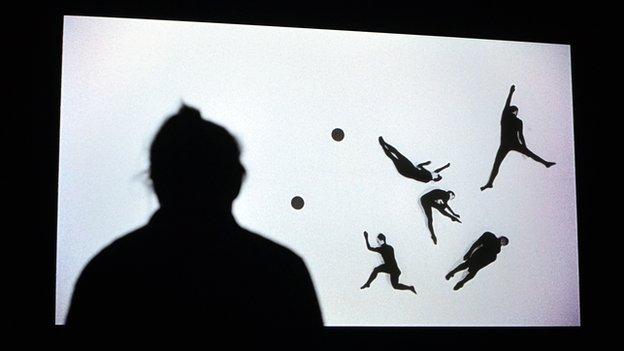
Campbell's art brings together "authentic" archive footage with fictional elements
Art critics have begun to question the relevance of the Turner Prize following Duncan Campbell's win on Monday.
The Telegraph's, external Mark Hudson wrote that the prize "has been a victim of its own success. The things it was created to do have now been done."
He suggested the selection list should be taken out of the hands of the Tate and given to the Art Fund.
The Tate said 2014 had been "a strong year" and that the prize continued to "promote discussion" of art.
'Alieniating'
The Turner Prize was established in 1984 to celebrate new developments in contemporary art.
It is given to a British artist under 50 whom judges believe has put on the best exhibition of the last 12 months.
The Art Fund, Hudson argues, is "a very different organisation with a much broader agenda".
Involving it, he continues, "would allow the Turner Prize genuinely to reflect the vast diversity of art being produced in Britain today.
"One thing is for sure," he concludes. "Something has to change".

Campbell won £25,000 as this year's winner
The art critic for The Times offered a different solution, external, suggesting the event should only be staged every third year.
"The heyday of the Turner, when every London cabbie had an opinion, when even the most traditional of Tate crashers could be goaded into voicing his piece, has gone," writes Rachel Campbell-Johnston.
"It's hardly surprising. We have run through the novelties: no painters; the first female winner, the first work of sound art, the first performance piece.
"The Turner selectors are now scraping at the bottom of a barrel. It should be staged only every third year.
"And to make the point, this year's prize should have been withheld, cancelled due to general indifference."
Born in 1972, Campbell studied at the University of Ulster, Belfast, before completing a Master of Fine Art programme at Glasgow School of Art.
His films bring together archive footage, photographs, interviews, animation and re-enactment.
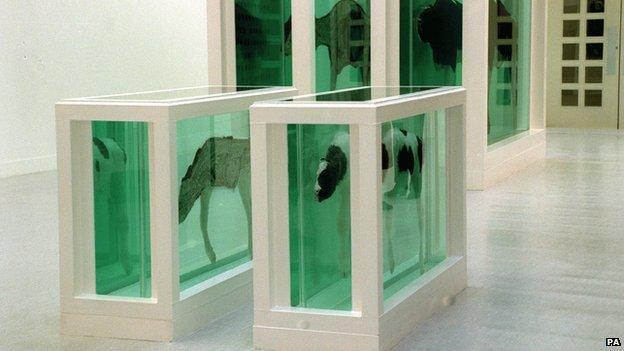
Damien Hirst famously won the Turner Prize in 1995
Campbell, who lives and works in Glasgow, has said he strives to find what the writer Samuel Beckett termed a "form that accommodates the mess".
Commenting on Campbell's success, Campbell-Johnston said he was the best choice but had been "merely the best of an indifferent bunch".
The Guardian's Adrian Serle, external agreed, noting that Campbell had "produced the most consistently interesting body of work of all four shortlisted artists.
"It is no wonder he has won," he continues. "Even so, his film It for Others is overlong, over-complicated, and with a voice-over so didactic in tone it easily alienates viewers."
'Sober and respectful'
Hudson was more brutal in his assessment, saying he "couldn't bear It For Others" and describing it as "drab".
Speaking ahead of the winner being announced, the BBC's Arts Editor Will Gompertz reached a similar conclusion regarding this year's entries.
"I think actually it's quite a weak year," he told the Today Programme. "I have to say I don't think it's a classic year.
"The Turner Prize has been going for 30 years and it's well beyond its rebellious, anti-establishment, attention-seeking attitude of its teenage years.
"All that fun and games has gone, and it's a much more sober, respectful, polite, middle-aged prize. Frankly it isn't quite as exciting."
The Tate responded to the criticisms, telling the BBC: "The Turner Prize 2014 is another strong year. The variety of media used by the four short listed artists reflects the diversity of work being made in the UK today, often exhibited globally, from film and video to performance, collaborative working, printmaking and installation.
"Duncan Campbell's It For Others 2013 is an ambitious and complex film which rewards repeated viewing.
"The purpose of the Turner Prize is to promote discussion about new developments in contemporary British art and, now in its 30th year, it continues to evoke a wide range of responses from the public and the media."
- Published1 December 2014
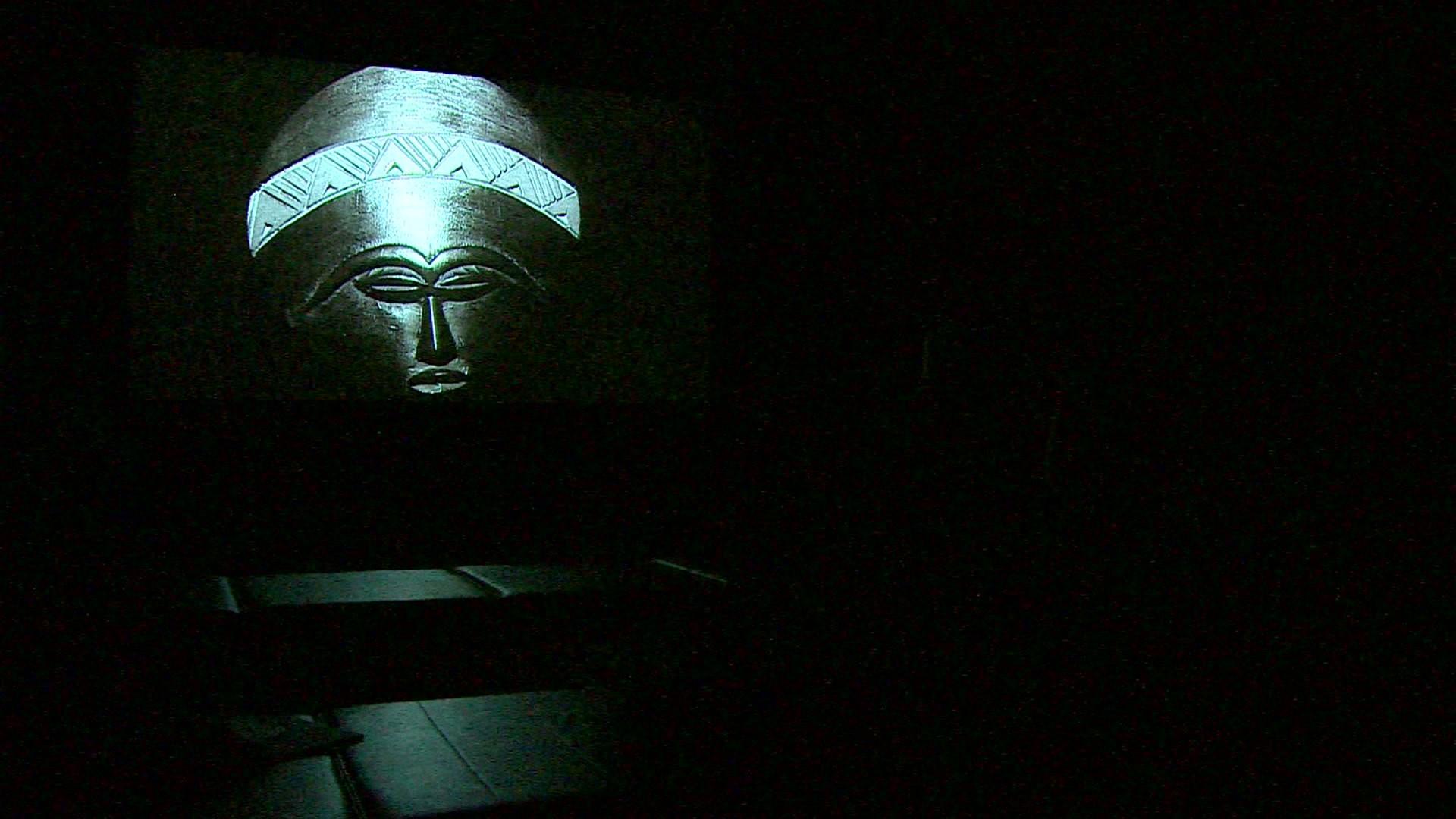
- Published1 December 2014

- Published29 September 2014
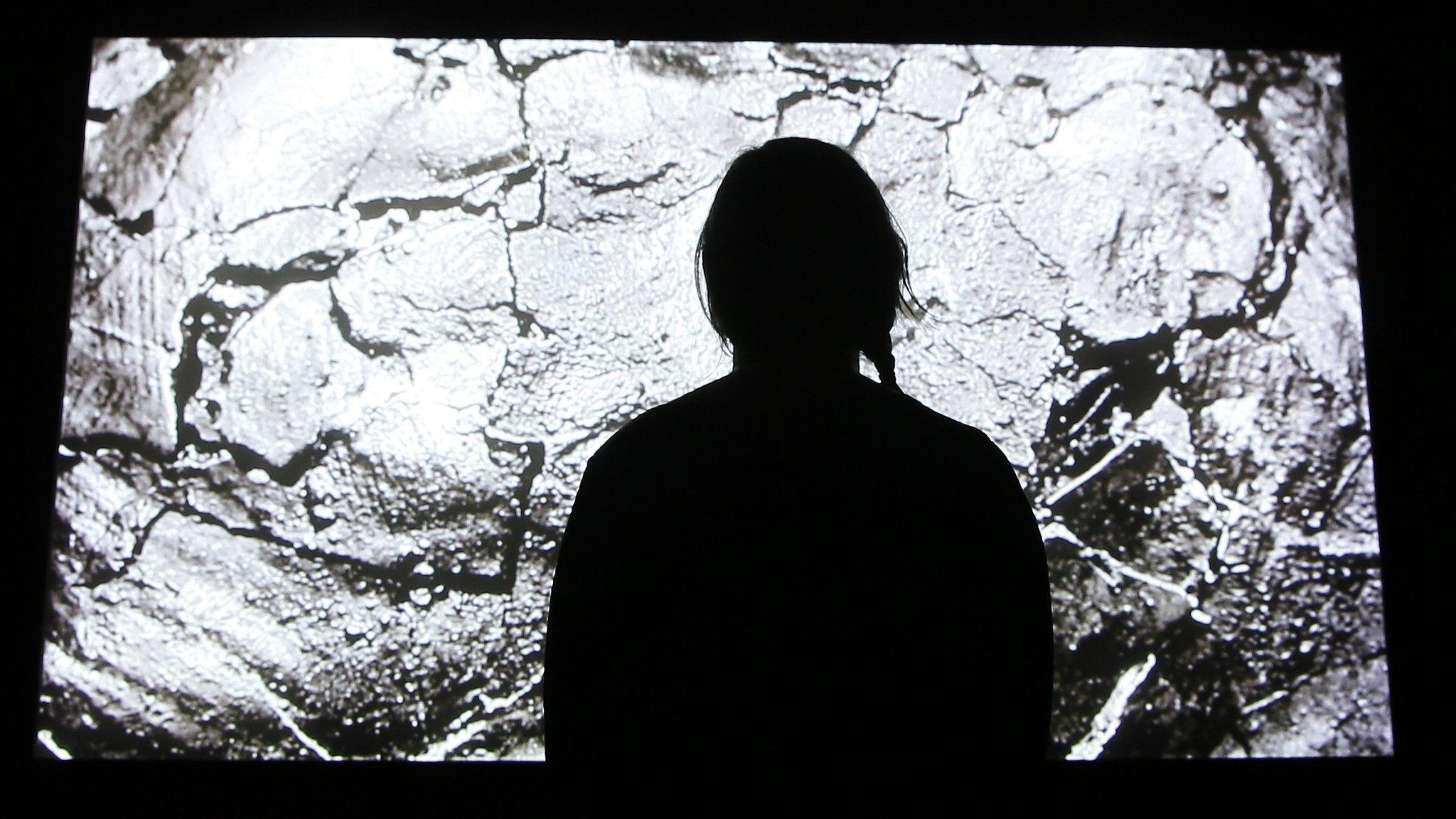
- Published7 May 2014
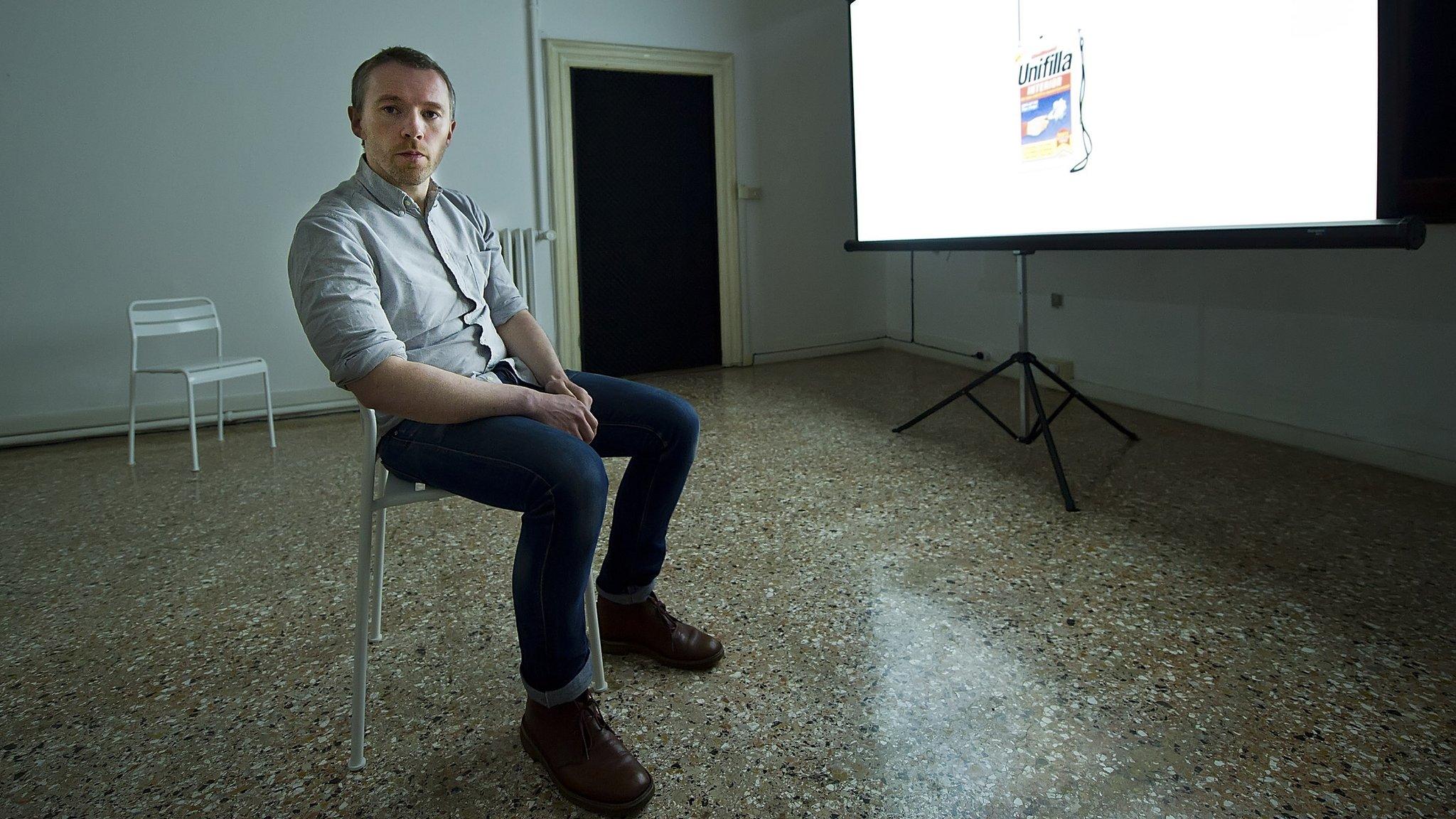
- Published7 May 2014
